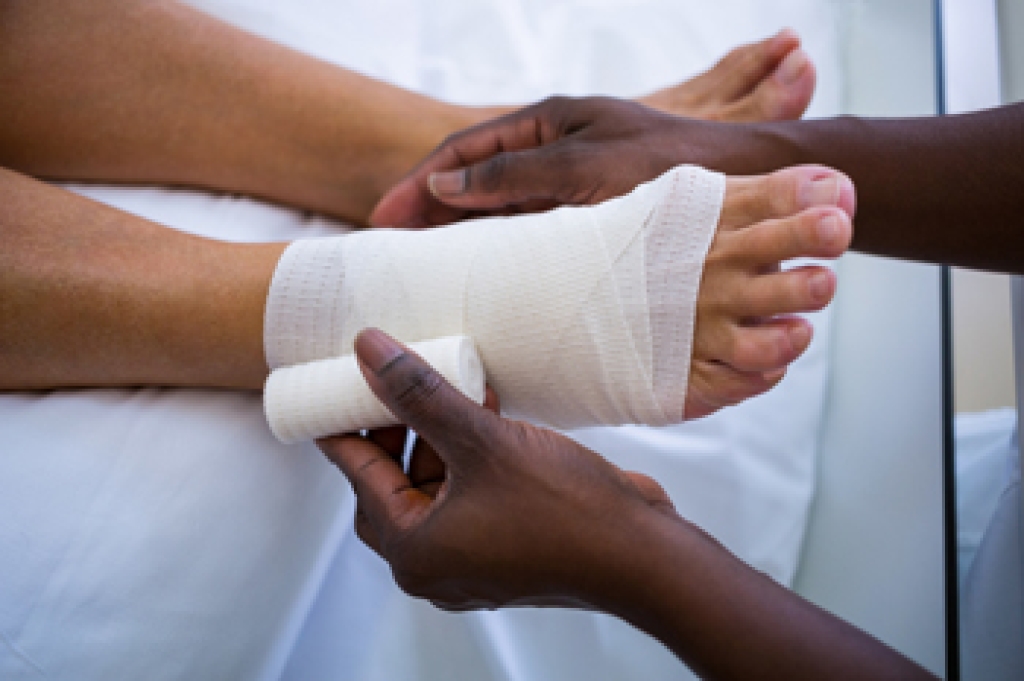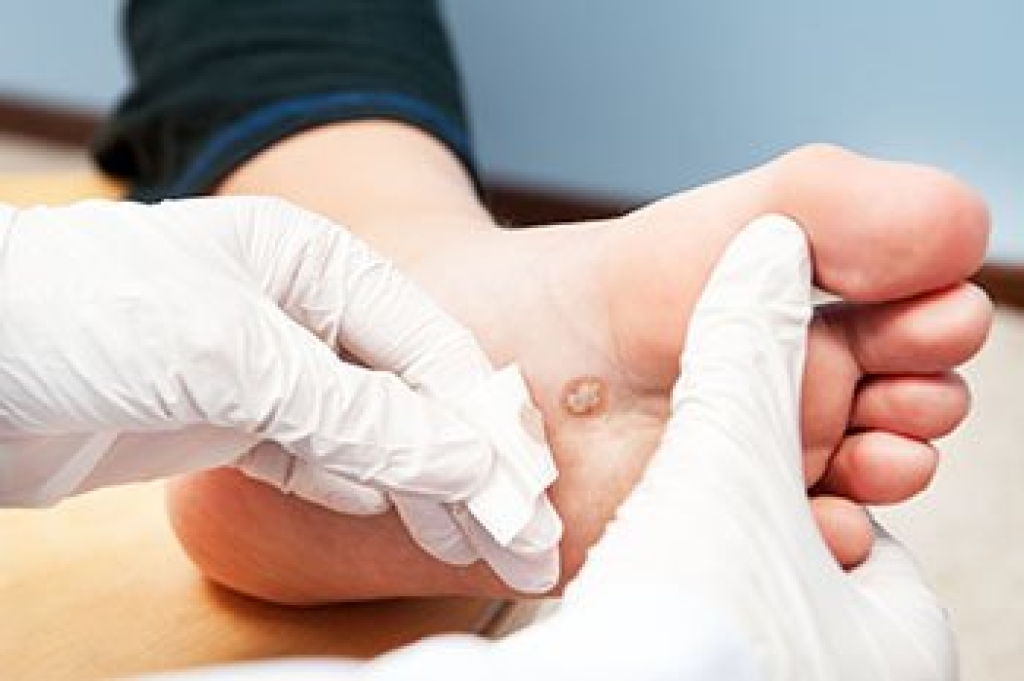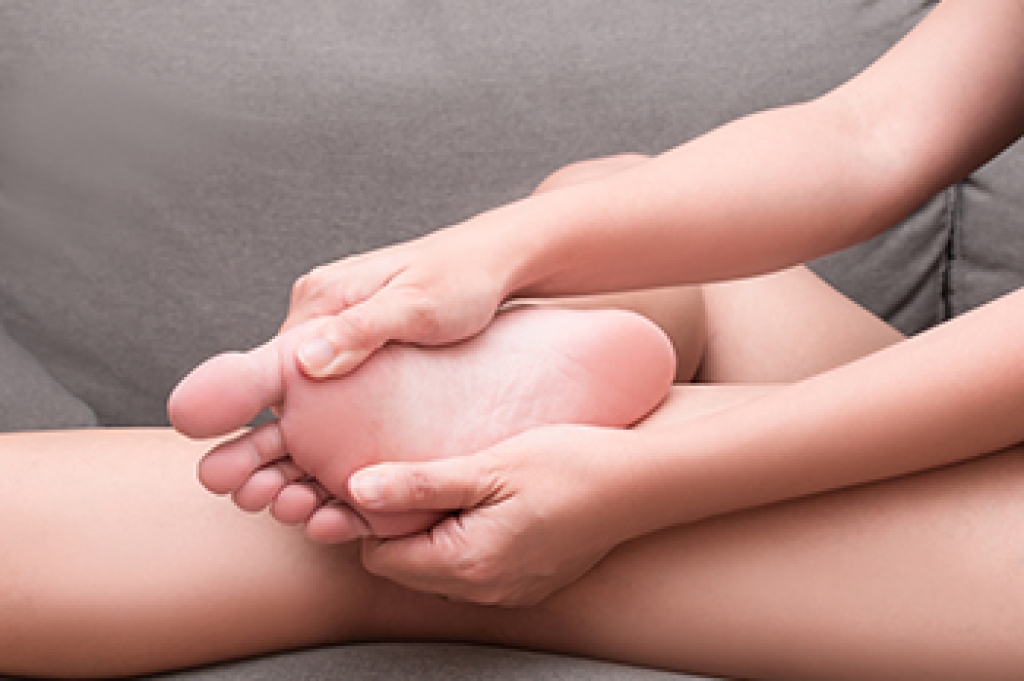Wounds can occur on the feet from an injury, poor circulation, prolonged pressure from improperly fitted shoes, or complications from diseases like diabetes, neuropathy, and vascular disease. Over time, if these wounds do not close and the underlying tissue becomes affected, they are considered ulcers. These types of wounds are potentially dangerous – particularly in people with diabetes. Ulcers can lead to infections in the bone and skin. You can sometimes tell if the wound on your foot has become an ulcer if it is draining, emits a foul odor, or the tissue has become thickened, inflamed, or red. It is important to seek the professional wound care that a podiatrist can provide to help heal the wound and prevent more serious complications from developing. Podiatrists typically begin by cleaning the wound and removing any unhealthy tissue, termed debridement. Antibiotics may be prescribed if an infection is present. They may also suggest certain shoes and orthotics that will keep pressure off the wound and, in severe cases, perform surgery and other methods of wound care.
Wound care is an important part in dealing with diabetes. If you have diabetes and a foot wound or would like more information about wound care for diabetics, consult with Paul Potach, DPM from Illinois . Our practitioner will assess your condition and provide you with quality foot and ankle treatment.
What Is Wound Care?
Wound care is the practice of taking proper care of a wound. This can range from the smallest to the largest of wounds. While everyone can benefit from proper wound care, it is much more important for diabetics. Diabetics often suffer from poor blood circulation which causes wounds to heal much slower than they would in a non-diabetic.
What Is the Importance of Wound Care?
While it may not seem apparent with small ulcers on the foot, for diabetics, any size ulcer can become infected. Diabetics often also suffer from neuropathy, or nerve loss. This means they might not even feel when they have an ulcer on their foot. If the wound becomes severely infected, amputation may be necessary. Therefore, it is of the upmost importance to properly care for any and all foot wounds.
How to Care for Wounds
The best way to care for foot wounds is to prevent them. For diabetics, this means daily inspections of the feet for any signs of abnormalities or ulcers. It is also recommended to see a podiatrist several times a year for a foot inspection. If you do have an ulcer, run the wound under water to clear dirt from the wound; then apply antibiotic ointment to the wound and cover with a bandage. Bandages should be changed daily and keeping pressure off the wound is smart. It is advised to see a podiatrist, who can keep an eye on it.
If you have any questions please contact our offices located in Wheeling and Berwyn, IL . We offer the newest diagnostic and treatment technologies for all your foot and ankle needs.






